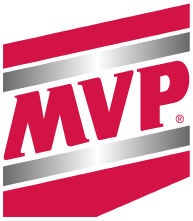Calcium is a micromineral found in highest amounts in bone and teeth. However, it also has important roles in supporting muscle contraction, cell membranes, blood clotting, enzymes regulation, and hormone release. Absorption of calcium from the small intestine is controlled by vitamin D but can be reduced if there is too much phosphorus in the diet. Ideally, horses should receive slightly more calcium than phosphorus – a ratio between 1:1 and 2:1. Pregnant and lactating mares, growing horses, and exercising horses may need more dietary calcium than an adult horse at rest.
Magnesium (Mg) is a macro mineral that is frequently recommended for a wide range of equine health conditions. Magnesium helps to maintain normal muscle and nerve function, a healthy heart, healthy immune system and strong bones. Magnesium aids to regulate blood sugar levels, promotes normal blood pressure, and known to be involved in energy metabolism and protein synthesis. Since a symptom of magnesium deficiency is agitation or anxiety, it is included in many calming supplements.
Manganese is a micromineral that aids in bone formation, growth and reproduction. It also supports carbohydrate and fat metabolism. Supplementation should be considered because not all diets provide the same levels of manganese. It plays an important role in young growing horses as well as active performance horses.
Potassium (K) is a macromineral commonly referred to as an electrolyte to help support proper muscle function. It helps maintain the body's acid/base balance and hydration status. Muscle weakness, fatigue, and exercise intolerance are likely when potassium deficiency is present.
Probiotics are live microorganisms (bacteria and yeast) that help promote healthy digestive function and support a healthy immune system. Often referred to as ‘good bugs’ they help break down ingredients/contents that the body normally can't, and help inhibit ‘bad bugs’ from growing.
Salt (sodium chloride or NaCl) plays an important role in maintaining hydration, nerve and muscle function and also helps regulate body's pH balance. Many equine diets can be low in sodium, therefore additional supplementation may be necessary and can vary depend on workload, exercise, weight etc. According to the Nutrient Requirements of Horses (NRC), a 1,100 pound adult horse in no work requires 10 grams of sodium daily, which can be met by giving 1 ounce of salt daily.
Sodium helps support normal nerve and muscle function, as well as transport of many substances (such as glucose) across cell membranes. The two elements (sodium and chloride) are responsible for the regulation of body fluids, as well as the conduction of electrical impulses in nerves and muscles, and are the most important of the minerals known as electrolytes (minerals which are lost in the sweat and urine during exercise stress). There is very little sodium in forages and grains, therefore many equine diets can be low in sodium. Additional supplementation may be necessary and can vary depend on workload, exercise, weight etc. According to the Nutrient Requirements of Horses (NRC), a 1,100 pound adult horse in no work requires 10 grams of sodium daily, which can be met by giving 1 ounce of salt daily.
My horse is picky and will not eat a powdered electrolyte. Could I administer a tube of the paste every few days, or as needed when he is sweating heavily, as an alternative?
MVP: Yes, using the Electro-Cell paste as-needed may be a good solution if your horse isn't a fan of the taste of the daily formulas.









